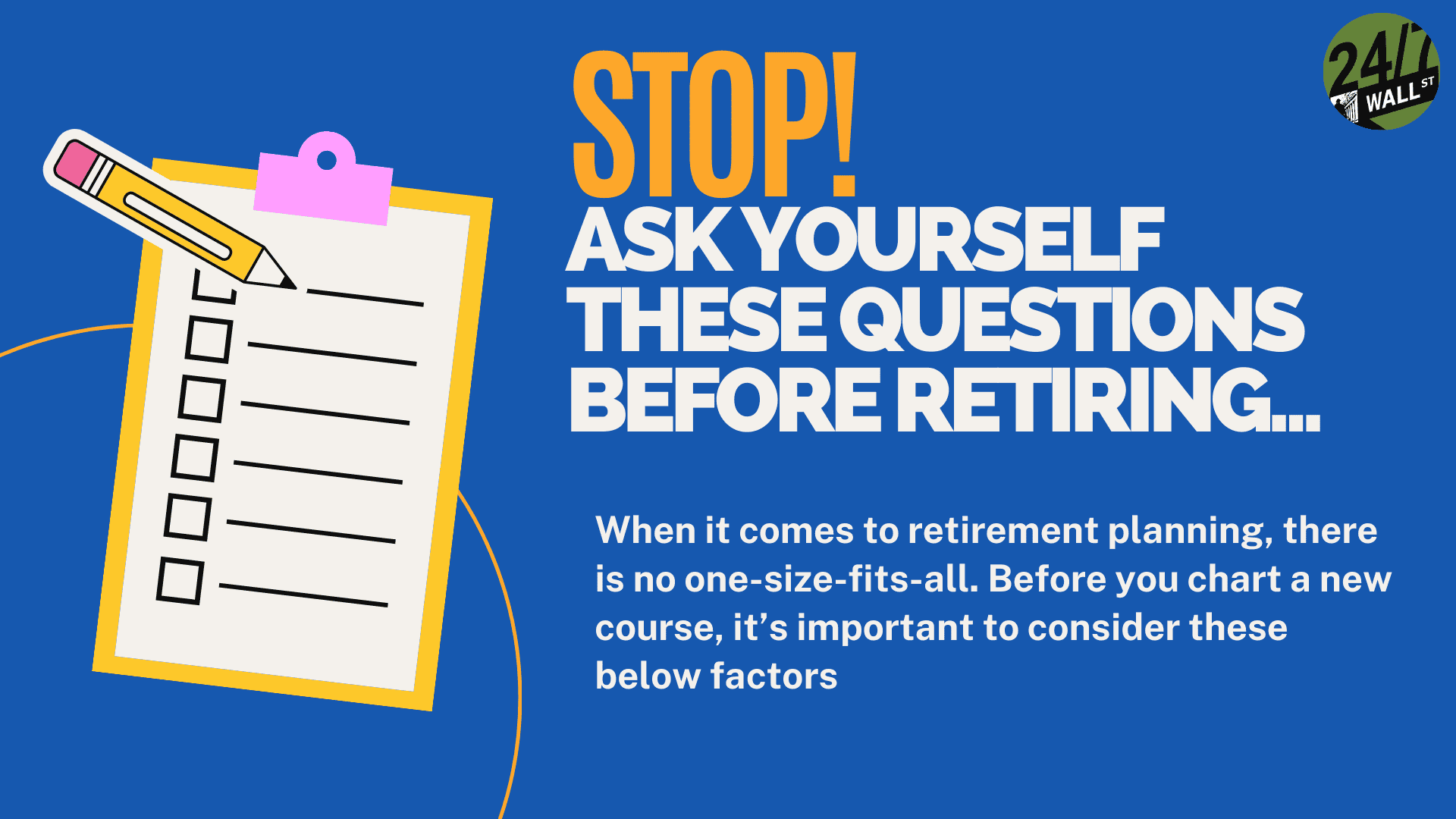Personal Finance
I'm 50 and have over $2 million saved - can I finally stop contributing to my retirement account?

Published:

When it comes to saving for retirement, there’s often a lack of clarity about how much is needed, at what age you should retire and how long that money will last. That’s because the answers to those questions are based on personal circumstances. So when one Reddit user posted about their situation, the answers were rather fluid. But the post brings up a good question: Is $2 million enough?
Americans now estimate they will need $1.46 million to retire comfortably, according to Northwestern Mutual’s 2024 Planning & Progress Study. So if you’ve already amassed $2 million in a retirement account, congratulations on being ahead of the curve. However, there are still some considerations you should make before deciding to stop contributing to a retirement account.

While the cost of living in the U.S. may periodically subside, it is rare for things like food, housing or healthcare to get cheaper. In fact, it hardly ever happens. That $2 million — and the yield it could potentially produce — in 2024 may not be sufficient down the road. Take, for example, food inflation. Going back to 1968, on a monthly basis, food prices have only fallen 10 times over the course of 680 months dating back to President Lyndon B. Johnson’s final year in office. That’s just 1.47% of all months. So while $2 million may be enough in the present, factoring for increases to the Consumer Price Index may make it not seem like enough when you finally call it quits around age 65. That brings up my next point …
In the U.S., the average age of retirement stands at 65 for men and 63 for woman. However, if you wait until age 70 to begin collecting your Social Security, you are then eligible for the maximum benefit. If that is part of your blended retirement income plan, you will have to ensure your $2 million nest egg (and its potential yield) can produce will sufficiently cover your living costs. If you plan on retiring before the age of 70, and assuming you begin taking withdrawals when first eligible at age 59.5,
You cannot begin taking withdrawals from your 401(k), 403(b) or an individual retirement account (IRA) until age 59.5. But if you do not need to, you will not have to worry about required minimum distributions (RMDs) until age 72 (note: Roth IRAs do not have RMDs). If you find yourself in a situation where you are not going to require those funds immediately, look into a Roth conversion for a 401(k), 403(b) or other defined contribution plan that does carry RMDs. Doing so can allow you to minimize the tax burden of those withdrawals later in life while allowing the funds to grow tax-free in a Roth account. Additionally, consider allocating the funds in your retirement accounts to yield-producing equities, like dividend-focused exchange-traded funds (ETFs), Dividend Aristocrats and Dividend Kings. Dividend ETFs typically pay higher yields than individual stocks, but they also carry expense ratios that you pay annually. Meanwhile, stocks that belong to the Dividend Aristocrats and Dividend Kings groups have raised their dividend payouts for 25 and 50 consecutive years, respectively. If you are able to secure an average 4% yield from your positions, that $2 million will produce $80,000 per year, or $6,666.66 per month — which should be plenty to sustain a retirement lifestyle.
A recent Harvard University study found that an astounding 46% of homeowners between the ages of 65 and 79 carried a mortgage during retirement. Meanwhile, a federal study — the Survey of Consumer Finances — found that the share of Americans age 75 and over who are carrying a mortgage has been steadily rising for decades now, growing from just 55 in 1995 to a then-all-time high of 25% in 2022. This can be debilitating to seniors on fixed income. If you have already saved $2 million, but you find yourself likely to still be making home payments once you reach your target age of retirement, you may want to consider pausing retirement plan contributions in favor of making additional payments towards your mortgage’s principal balance.
Everyone’s retirement expectations are different, but a lot of that has to do with location. For example, if you are a resident of the state of Hawaii, you can expect your $2 million nest egg to last you 19.19, according to GOBankingRates. But at the other end of the spectrum, residents of Oklahoma can stretch that amount an estimated 40.13 years. And yes, while Hawaii is a significantly more appealing place to retire, you have to factor for all annual expenditures during retirement based on your region, as they can vary widely. States with higher food costs, homeowners insurance and healthcare include the aforementioned Hawaii, California, Massachusetts, New Jersey, Maryland, New York and Connecticut, while states with lower costs of living include Utah, Tennessee, Arizona, Nevada and Washington.
Lastly, ask yourself if you need to stop saving for retirement. At age 50, you could conceivably work another 15 years. With a retirement account balance of $2 million, over the course of 15 years while getting 10% returns (the average annual return of the S&P 500) with dividends reinvested quarterly, you could grow that amount to over $8 million by age 65.
Are you ready for retirement? Planning for retirement can be overwhelming, that’s why it could be a good idea to speak to a fiduciary financial advisor about your goals today.
Start by taking this retirement quiz right here from SmartAsset that will match you with up to 3 financial advisors that serve your area and beyond in 5 minutes. Smart Asset is now matching over 50,000 people a month.
Click here now to get started.
Thank you for reading! Have some feedback for us?
Contact the 24/7 Wall St. editorial team.